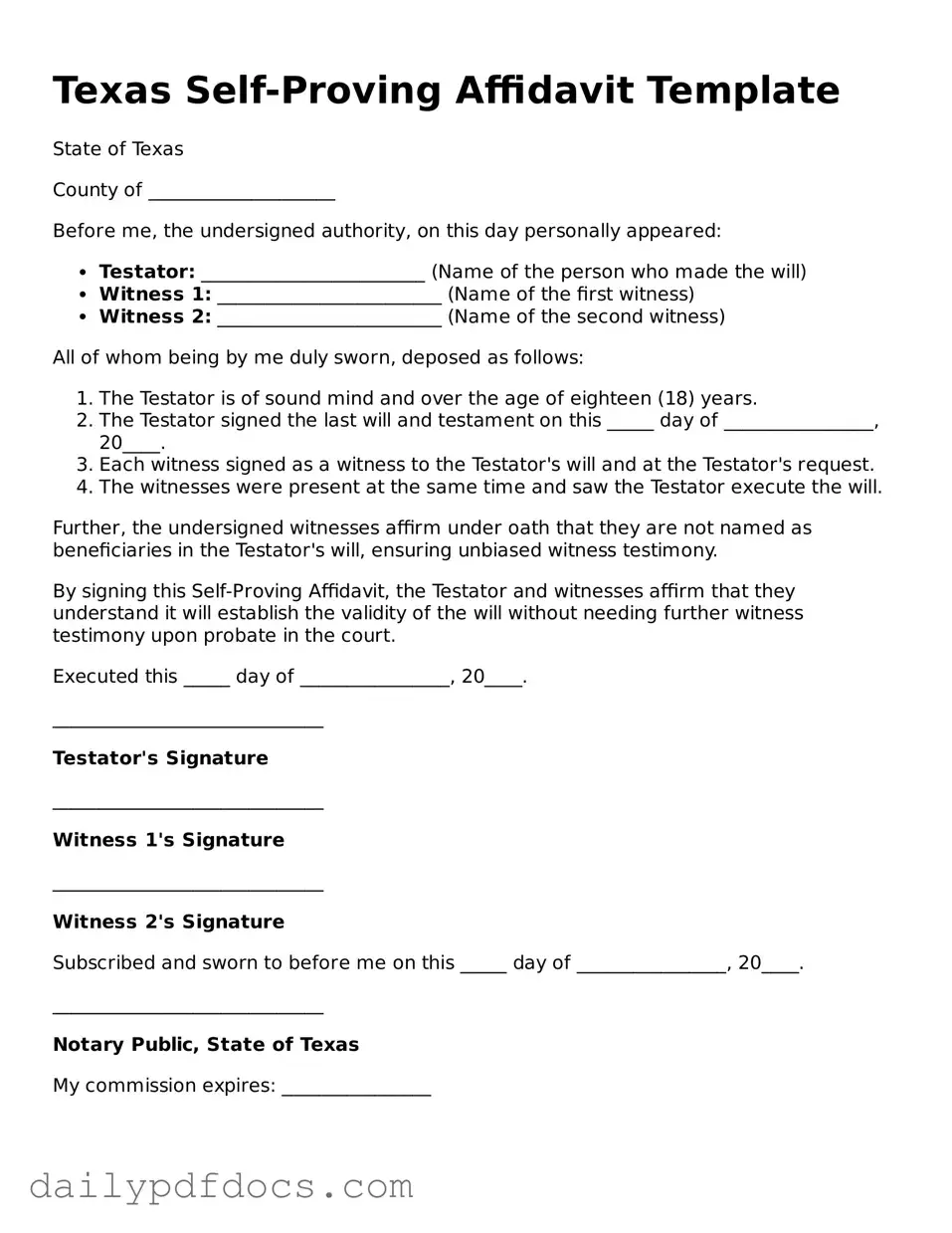Texas Self-Proving Affidavit Template
State of Texas
County of ____________________
Before me, the undersigned authority, on this day personally appeared:
- Testator: ________________________ (Name of the person who made the will)
- Witness 1: ________________________ (Name of the first witness)
- Witness 2: ________________________ (Name of the second witness)
All of whom being by me duly sworn, deposed as follows:
- The Testator is of sound mind and over the age of eighteen (18) years.
- The Testator signed the last will and testament on this _____ day of ________________, 20____.
- Each witness signed as a witness to the Testator's will and at the Testator's request.
- The witnesses were present at the same time and saw the Testator execute the will.
Further, the undersigned witnesses affirm under oath that they are not named as beneficiaries in the Testator's will, ensuring unbiased witness testimony.
By signing this Self-Proving Affidavit, the Testator and witnesses affirm that they understand it will establish the validity of the will without needing further witness testimony upon probate in the court.
Executed this _____ day of ________________, 20____.
_____________________________
Testator's Signature
_____________________________
Witness 1's Signature
_____________________________
Witness 2's Signature
Subscribed and sworn to before me on this _____ day of ________________, 20____.
_____________________________
Notary Public, State of Texas
My commission expires: ________________
